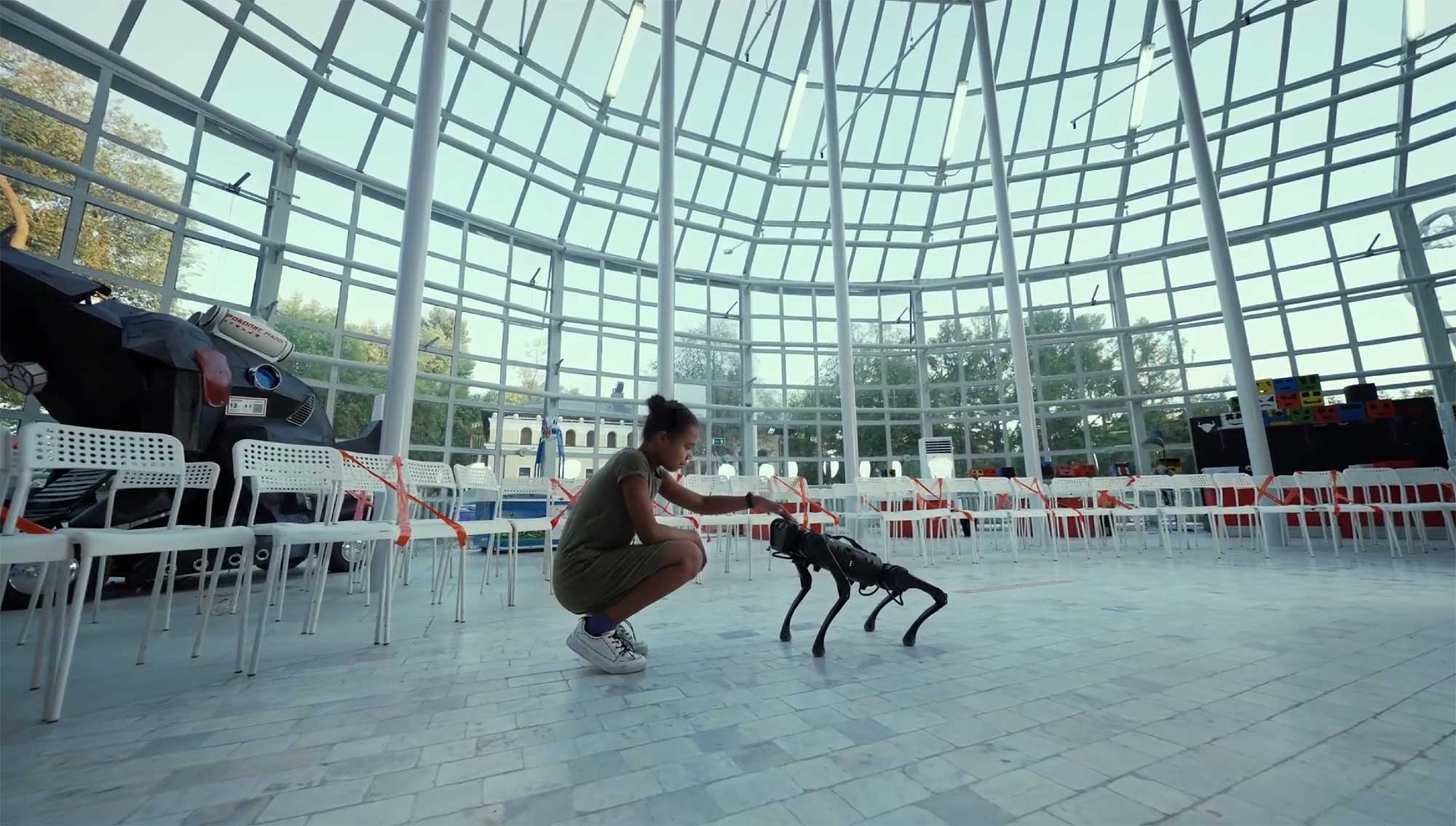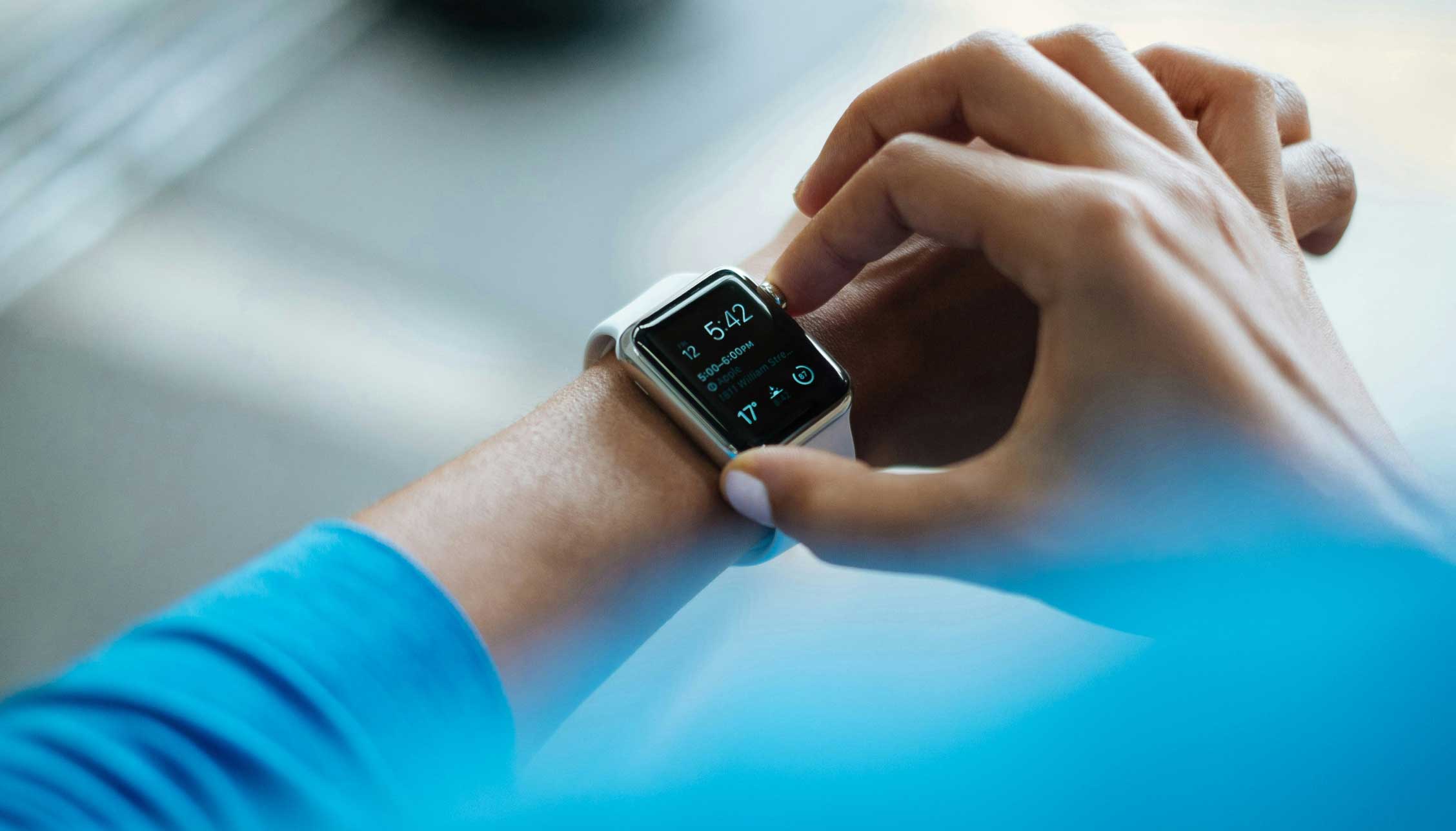Culture
Trustworthy tech, real-world impact, and the art of disconnecting with Carl Lapierre
At the intersection of AI innovation and hands-on experience, Carl Lapierre is shaping the future of enterprise-grade software. In this new Osedea Portrait, Carl shares his perspective on how AI, especially NLP, is transforming industries, the challenges of building trustworthy systems, and what it takes to stay ahead in this fast-moving space. From hackathons to agentic systems, public speaking, and van life adventures, Carl brings a refreshingly human approach to cutting-edge tech.
How do you stay updated with the latest advancements in AI, especially in NLP (Natural Language Processing)?
For me, the best way to keep learning in a fast-evolving field is to stay hands-on and involved. I read technical books, keep up with the latest news, follow blog posts, and listen to tech podcasts, but nothing beats real-world experience. Being part of developer communities, having in-depth technical conversations at meetups, and getting my hands dirty with new tech is where the real growth happens. For the past three years, I’ve been organizing hackathons at Osedea because that's truly where I learn the most. Exploring bold ideas and experimenting with emerging technologies is not only fun, but also one of the fastest ways to level up.
What was the most exciting AI project you’ve worked on at Osedea so far?
The most exciting AI project I’ve worked on at Osedea is actually the one I’m currently involved in. We’re integrating several AI-powered solutions into a manufacturing ERP system, and my main focus is on building an agent assistant. It’s a complex, enterprise-level project with a full feature set, and it’s been incredibly rewarding to see how everything I’ve learned over the past two years, especially around RAG, LLMs, and agentic systems, is coming together in one place.
This project really excites me because of the potential impact. Agent-based systems can bring massive ROI through automation and intelligent support, and being able to contribute to something with that kind of value is both challenging and fulfilling.
How do you see AI transforming industries in the next decade?
Over the next decade, I think AI will fundamentally transform nearly every industry, not just by automating tasks, but by rethinking how entire workflows and systems operate. In areas like healthcare, manufacturing, and logistics, we’ll see AI driving smarter decision-making, optimizing operations, and uncovering efficiencies that weren’t possible before. In creative fields, AI will become more of a collaborative tool, helping people iterate faster and explore new ideas. For example, we’re seeing a lot of excitement around “vibe coding”, which is opening the door to creative minds who may not have had the technical background to bring their ideas to life. It’s been amazing to see a rise in indie hackers and solo builders empowered by AI tools. It’s lowering the barrier to entry in a way that feels genuinely transformative.
In your opinion, what are the key challenges we face when implementing AI in real-world applications?
One of the biggest challenges in implementing AI in real-world applications is trust, especially around truthfulness, governance, and decision-making. It’s not just about building the model or deploying the system; it’s about ensuring the output is reliable, transparent, and aligned with human intent. In many cases, handling ambiguity and verifying information can be more time-consuming than the technical implementation itself.
There’s always a risk when we start delegating decision-making to machines, especially in critical or high-stakes contexts. I always come back to this one example: Google’s AI once suggested adding glue to a pizza for better cheese adhesion, because it pulled that idea from a satirical Reddit post. It’s a funny story, but it highlights how easily things can go wrong if we’re not careful with sourcing, context, and validation.
So for me, the key challenge isn’t the technology, it’s building systems we can actually trust.
Who has been the biggest influence on your career, and what have you learned from them?
Not a person, but Osedea as a whole! Being here has accelerated my growth in ways I never expected. I’m part of the Elevate leadership program, which has been instrumental in helping me develop as a leader. On the technical side, I’m constantly challenged through a wide variety of projects that span different domains and levels of complexity. Osedea has a strong culture of personal growth; I feel heard and supported when I express interest in exploring new areas. In fact, it’s thanks to that environment that I now have the opportunity to work with the AI team.
What skills do you think are most important for someone looking to advance in software development and AI?
While technical skills are important, especially in software development and AI, I think one of the most underrated but crucial skills is the ability to deeply understand the domain you’re working in. Being able to grasp business processes, ask the right questions, and translate real-world needs into technical solutions is what sets great developers apart.
As AI continues to automate more of the routine coding tasks, the value of human input increasingly lies in understanding context, defining clear requirements, and bridging the gap between technology and actual business needs. In many ways, those skills are becoming more important than raw technical ability. The developers who can think critically, communicate clearly, and navigate complexity are the ones who’ll thrive.
What do you consider your biggest career achievement so far?
It might not seem like a big deal to everyone, but breaking into public speaking has been one of my proudest career achievements. I'm always looking for ways to push myself outside of my comfort zone, and this was by far one of the toughest challenges I’ve taken on. Stepping onto a stage and sharing my learnings with an audience felt both terrifying and exhilarating, but it also opened the door for me to truly engage with the tech community in a new way. My first talk was last year at WeAreDevelopers in Berlin, and giving a presentation at an international event for the first time was a huge leap. It ended up going really well, and the experience was not only rewarding, but also a turning point in how I see myself as a professional.

How do you manage to stay motivated and energized during periods of high workload?
I’m fortunate to have a very energetic golden retriever who gives me the classic sad eyes until we head outside, so no matter how busy things get, I end up taking three walks a day, even in -30°C weather. I intentionally leave the headphones at home and use that time to disconnect completely. Just being outside in the quiet has a huge impact on my mental clarity and energy.

I also play guitar a bit when I feel overwhelmed, which helps me calm down, shift my focus and reset by doing something creative and non-technical. Those small routines go a long way in keeping me motivated and balanced during high workload periods.
What’s the most rewarding aspect of balancing a demanding job with your personal life?
I’m not really a fan of the phrase “work hard, play hard” because it often comes off as hustle-culture-y, but in some ways, it fits. In most organizations, that mentality usually turns into “work hard… and no play.” But at Osedea, the fast-paced, demanding work is actually balanced with meaningful rewards and support for our quality of life.
One of the best examples is the Dreams Come True perk, which gave me $5,000 and an extra week off to spend however I wanted. I used it to travel through Italy with my family, and it was an unforgettable experience. We also get extra vacation days around statutory holidays, turning some summer weekends into four-day breaks, which makes a huge difference. And this October, the entire company is flying overseas for our annual company event, which is just incredible.
This kind of balance makes the intensity of the work feel purposeful, not draining. I’d honestly take that over a slower, more monotonous job any day.
If you could have any superpower, which one would you choose and how would you use it in your career?
It's easy—being a new dad, I wish I had the superpower of not needing sleep. Imagine having 8 extra hours in your day and always feeling well-rested. The dream! It would just help me get more done. I often find myself wanting to do 100 things at once, but I have to prioritize since, like everyone else, I need to sleep.
What would you like to achieve in the next five years, both professionally and personally?
Work-life balance is really important to me, and I feel fortunate that Osedea respects and supports that. In 2022, I converted an old van into a fully off-grid camper, complete with solar panels and an electrical system. I drove it across Canada and the U.S. twice! The first time was from St. John’s, Newfoundland to Tofino, B.C., and the second was from Montreal to Banff and down to Los Angeles. I was able to do all of that while continuing to work on projects at Osedea, which was an amazing experience. I love road trips, nature, and exploring new places.

In 2023, I sold the van because our family was growing and it no longer fit our needs, but one of my goals for the next few years is to convert a newer, larger one that can accommodate all of us. There are still so many places I want to explore, like the Yukon and Alaska. So for me, this goal is both personal and professional: continuing to grow in my career while maintaining the freedom and balance to live life fully with my family and my team.
What does success look like for you, both in your career and life in general?
I sort of hinted at this in other questions, but for me, success is about continuous growth, meaningful challenges, and maintaining a healthy work-life balance. I believe life should be exciting and full of new experiences. In my 20s, I focused a lot on travel, visiting over 30 countries, which gave me a deep appreciation for new perspectives and personal growth. Toward the end of that chapter, I felt some stagnation, but I came to realize that growth doesn’t only come from travel. Your career can be just as fulfilling if you’re open to stepping outside your comfort zone.
Success, to me, means being curious, staying challenged, and not shying away from new opportunities, whether that’s leading a complex project, learning a new skill, or navigating life with a growing family. It’s about creating a life where professional achievement and personal fulfillment go hand in hand.
What is one lesson you would like to pass on to the next generation of developers?
One lesson I’d pass on to the next generation of developers is to stay present and aware of what’s happening in the tech world, understand the trends, but don’t get lost in the hype. Whether it’s blockchain and crypto or AI and agents, there will always be waves of inflated excitement around new technologies. The key is to ride those waves with a critical mindset.
Pay attention to how the field is evolving, learn the core concepts, and think about where things are heading, not just what’s flashy today. Being curious and informed, without getting swept up in the noise, is one of the most valuable skills a developer can have.


Did this article start to give you some ideas? We’d love to work with you! Get in touch and let’s discover what we can do together.



-min.jpg)
-min.jpg)
-min.jpg)



